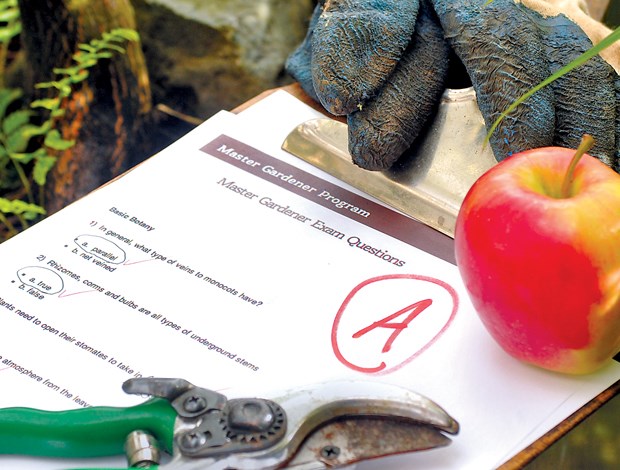Ever since I began teaching horticulture I have been mentoring select individuals to become better professionals.
During normal classroom teaching or field training, mentoring is always part of the teaching process, at least for me. Classroom mentoring lasts the duration of the program and it is one level of mentoring. Every once in a while I find a worthy individual who has the aptitude, potential and the passion to design and build beautiful gardens. Such a person may benefit from an ongoing mentorship that lasts many years. As any mentor can tell you, the rewards are fulfilling personally and benefit the larger industry.
It's not easy to choose whom to mentor. Sometimes my selection is based on an intellectual and emotional connection with the prospective protégé or protégée. I have found that without those connections there is poor synergy. I also look for aptitude. You don't have to be a rocket scientist but you have to have the ability to grow and learn to understand complex concepts. Passion is also an important virtue to find in someone because there are too many gardens being grown, maintained and built with little passion in the process. Those gardens are uninspiring.
The reason for my mentorship is simple, my inexplicable desire to help others grow. I don't completely understand my motivation nor do I want to analyze it. I am a defender of my faith in the potential of horticulture and gardening to help heal Mother Earth, and mentoring is needed more than ever to defend the faith.
I met one of my protégés, whom we'll call Frema, when he moved into a house near me. He has since moved away but we are still good friends. I have worked with him on some projects and continue to check in on his work from time to time. During my recent visit to one of Frema's projects he asked me jokingly to give him a letter grade for the project.
The work involved removal of a small overgrown front yard, replanting a tree, some perennials and installation of some artificial turf.
"You get a C," I told him. "Just a C."
"I thought for sure I would get aB for using artificial turf instead of real grass," he said.
We laughed partly due to an inside joke.
You see, when I met Frema, he only did lawn mowing, some grass installation and fall cleanup.
He quickly came to understand that turf can be transformed. Now he renovates gardens, builds some new ones and replaces more grass than he cuts.
"The reason for the C grade is because you installed grass where it is useless and does not contribute to the design," I said.
"But the customer had grass and wanted new grass, so I suggested artificial turf instead to make it lower maintenance," Frema said.
"That's reasonable, but the lawn could have been replaced with a larger entrance walkway and larger planting beds for better proportion with the house," I told him.
Lawn generally does not make a home look larger or more eloquent - artificial or not.
Another of my protégées recently installed a hedge for a client who has an existing cedar hedge on the city boulevard, backed by a chain link fence, and further backed by several long inground planter boxes. The new hedge was installed behind the planters, fencing and existing hedge. The reason for the second hedge, as a new owner of the house, the client was concerned the city would not maintain the hedge or possibly cut it down and he would lose his privacy. In general, most city park departments are too busy to come along and remove hedging unless there is a traffic or pedestrian conflict. And all residents are responsible for maintaining the city boulevard in front of their homes or businesses.
"Did you provide options for the client?" I asked my protégée.
"I explained how we could remove the planters to plant the new hedge, or change the chain link to a taller wood fence and not plant a new hedge," she said.
"Both good ideas; however, a phone call or email to the city park department could have determined if the hedge was going to remain or be removed," I told her.
It's a good bet that hedge is not slated for removal given its distance from the road, health and contribution to the neighbourhood's appearance.
For varying reasons, not all mentees remain mentored over the longer haul, which is probably as it should be. Some do however, and they continue to develop their skill designing and building gardens around our region. Their personal growth and professional development continues to inspire me, and give me hope for the future of gardens.
Todd Major is a journeyman horticulturist, garden designer and builder, teacher and organic advocate. [email protected]



